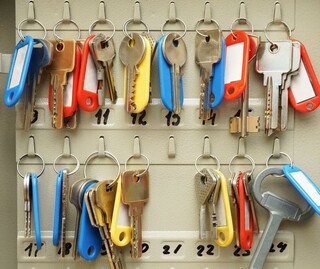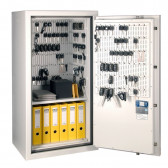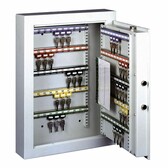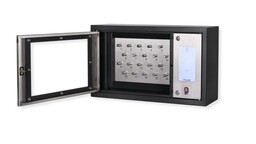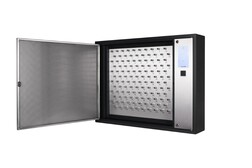Many companies circulate a large number of keys to rooms, lockers or car fleets. Effective management and safe storage of these keys is particularly important there. It is not only about order and saving time, but also about meeting all the necessary standards. For this purpose, it is best to equip the company with an automatic key depository.
Electronic key management system
Even the most tidy organisation can have a big problem when it has to manage large quantities of keys. This is because the risk of error and loss increases with the scale of operations and the number of employees. This is why more and more private companies, public institutions and authorities are investing in automatic depositories equipped with electronic management systems. These facilitate the issuing, depositing and storing of keys and make it possible to report in detail and track the history of their collection. This is not only a great convenience and improvement, but also a guarantee of security. Therefore, it is worth finding out on what principle key depositories work.
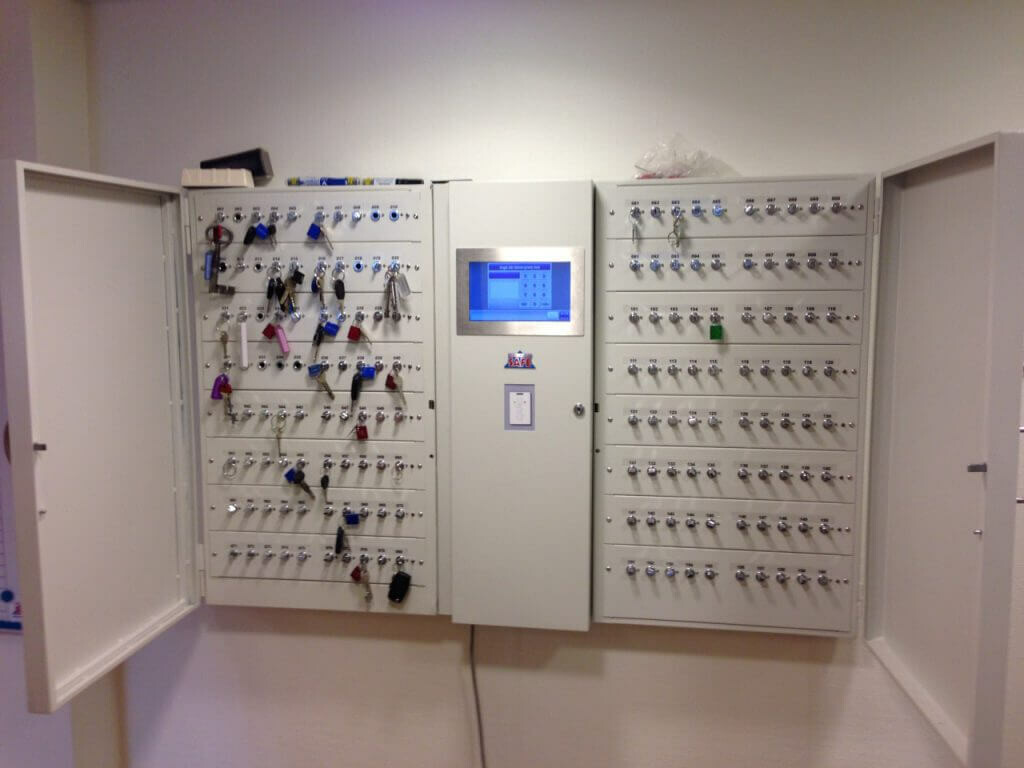
Firstly: convenience and security
The keys are located in a steel cabinet connected to the local network (Ethernet) and the alarm. Each key is located in a specific, designated slot equipped with a locking system. This ensures that no unauthorised person can retrieve the keys. This is particularly important in organisations where access should only be granted to selected people and there is a high risk of burglary. In the event of such an attempt, an electromagnetic lock equipped with an opening sensor sets off an alarm. In addition, each key or crack is permanently connected to a key ring, which enables docking in the socket. An additional protection is also the seal connecting the keys and pendants, which can be broken only with special tools. To retrieve them from the depository, selected persons are authorised, who are identified by the system with a proximity card or PIN code. After a correct authorisation, an employee may take the keys, but only those which are assigned to him/her. Others will not be available to him. Depositing them works in a similar way.
Reporting or full control
What is important is that each key also has a history assigned to it, which is stored by the system. Their downloading or depositing is reported. Such information is recorded as: which user, at what time and which key was taken and later released. The system sends out reports and alerts e.g. in the form of an sms, and the key cabinet enables the viewing of such history and informs what keys are currently in it. Everything happens fully automatically and without the participation of third parties. Therefore, it is possible to have full control over the circulation of keys and to grant differentiated rights to individual persons in the company. An important advantage of the depositories is also their modular construction and possibility of expansion and placing them e.g. in safes or vault rooms. Additionally, the system can be equipped with lockers containing various accessories, e.g. a USB charger or a scale. This makes it not only convenient but also a universal solution that guarantees order, convenience and security in your company.
An investment that pays off
In most companies and offices, keys are managed by a doorman, who often issues the key on an illegible signature. This can generate considerable costs, such as:
- replacing the lock if the key is lost,
- having a key made by an employee,
- theft of objects or personal data.
Thanks to key safes, not only do we eliminate the costs associated with employing a person whose only task is to issue keys, but what is much more important – the risk that the human factor is involved, that a given key will intentionally or accidentally reach an unauthorised person.
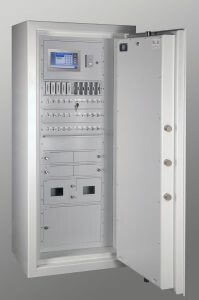
Key cabinets and access control
It is worth mentioning that today, access control based on plastic cards is increasingly used in companies. Modern depositories make it possible not only to store keys but also cards or to combine multiple functions, such as storing car keys with documents, storing room keys and also storing proximity cards.
This may be interesting for you: Is it worth having a key safe?
Key cabinets, biometrics and breathalysers
Depositories can be equipped with a sophisticated user identification system relying not only on standard methods such as PIN or proximity card. Biometric control, such as fingerprint reading or facial recognition of the user, is becoming increasingly popular. In the case of car keys, the depository can also be equipped with an alcotest.
In order to increase the level of security or access to particularly important rooms, we recommend a special version of the depository built into a classroom safe, accessible to employees only during strictly defined hours.
Check out, too: Keys always at hand – the mobile revolution SCLAK
Multi-functional key safe. An option not only for the automotive industry
